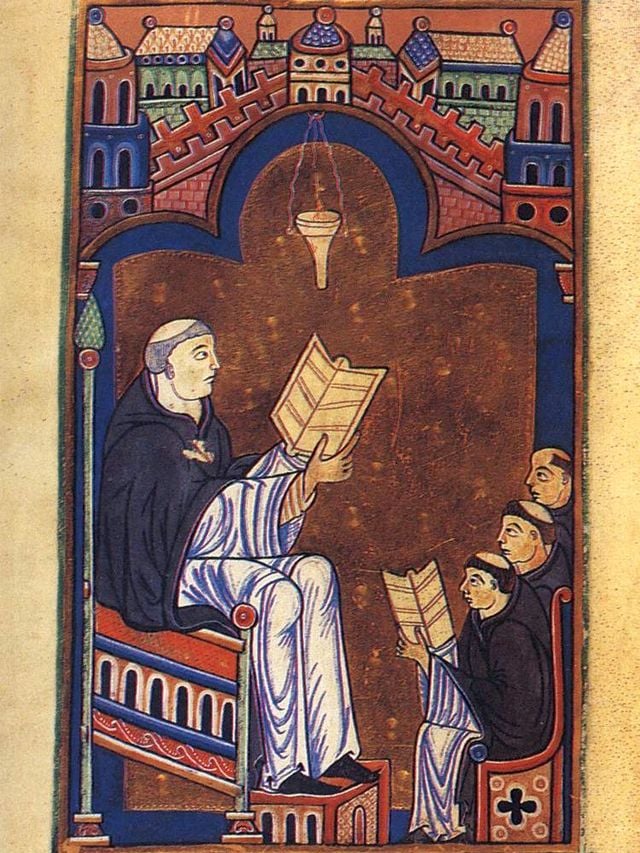 One of the biggest changes that occurred in the ecclesiastical world following the sixteenth century Reformation was the dissolution of monasteries. While some did remain within the Protestant world, the focus generally shifted from life in the cloister to the family and vocational duties of the average citizen. This is due, in particular, to Martin Luther’s emphasis on vocation as a means by which one serves God and the neighbor. One was not to obsess over self-salvation through strict ascetic practices and forced celibacy. Instead the free gift of righteousness given in the gospel freed one to worry about the needs of others in their communities. While Luther never condemned monasticism as a whole, it was a natural outgrowth of his reforms that they would cease to have the influence that the monastic life previously had in the West. In this article, I ask the question: is there then a place for Protestant monasticism? Can there be, or is the monastic life as such in contradiction to Luther’s reforms?
One of the biggest changes that occurred in the ecclesiastical world following the sixteenth century Reformation was the dissolution of monasteries. While some did remain within the Protestant world, the focus generally shifted from life in the cloister to the family and vocational duties of the average citizen. This is due, in particular, to Martin Luther’s emphasis on vocation as a means by which one serves God and the neighbor. One was not to obsess over self-salvation through strict ascetic practices and forced celibacy. Instead the free gift of righteousness given in the gospel freed one to worry about the needs of others in their communities. While Luther never condemned monasticism as a whole, it was a natural outgrowth of his reforms that they would cease to have the influence that the monastic life previously had in the West. In this article, I ask the question: is there then a place for Protestant monasticism? Can there be, or is the monastic life as such in contradiction to Luther’s reforms?
It is not well-known that there actually were monasteries that adopted the principles of the Reformation, and monks and nuns remained in that calling. While the more famous stories are those of Luther, Katie von Bora, and others who abandoned their vows, others remained in them while simultaneously adopting Luther’s reforms. This occurred in both Germany and Scandinavia. Some of these monastic communities still exist today. Here in America, there is one single Lutheran monastery called St. Augustine’s House in Oxford, MI which is not associated with any particular synod. There is also an order of Franciscans (of a sort) who are associated with the ELCA called The Order of Lutheran Franciscans. Such groups demonstrate that some have contended for consistency between monasticism and Lutheranism. While the Reformation overthrew many of the reasons why monasticism was so predominant, some still decided to live in this way of life.
The Lutheran Confessions speak about monasticism quite regularly, and any kind of Lutheran monasticism must take such criticisms seriously in order to be properly defined as Reformational in any meaningful sense. Article XXVII of the Augsburg Confession contains the primary elements of Luther and Melanchthon’s criticisms of the state of monasteries in the later middle ages. It is stated that monasticism started as a free association at the time of St. Augustine, and that only later did it become corrupted to such an extent that it is compared to a “carefully planned prison.” Any form of monasticism, for Lutherans, must then remain a free association of which one may leave at any time. To force one to take life-long vows is to deny Luther’s doctrine of vocation. God calls individuals to different positions in life. Celibacy may be a temporary gift for an individual in order to serve in a particular manner. God might then call that individual to family life at some point. Since monasticism is not divinely instituted (in contrast to marriage, for example) it cannot be forced.
The second critique of monasticism in the AC is that it obscures the gospel. While there is nothing wrong with individuals making a free decision to live communally and focus on spiritual formation, a man-made practice cannot be identified with the God-given means of grace. The AC is particularly critical of those who speak of monastic vows as a second baptism, or in some cases, an even greater gift than baptism. No vows removes sins. Only the gospel does that. No vows place one in a more spiritual position than another. Baptism is the great leveler, which places all Christians on the same grounds. While each has a different calling, no calling is more “spiritual” than another. Any concept of a two-tiered Christianity is antithetical to the Reformation.
The most problematic element of the monastic life, for Luther, is its works-righteousness. In the Smalcald Articles, Luther sums up his position thus:
1] As monastic vows directly conflict with the first chief article, they must be absolutely abolished. For it is of them that Christ says, Matt. 24:5,23ff : I am Christ, etc. 2] For he who makes a vow to live as a monk believes that he will enter upon a mode of life holier than ordinary Christians lead, and wishes to earn heaven by his own works not only for himself, but also for others; this is to deny Christ. 3] And they boast from their St. Thomas that a monastic vow is equal to Baptism. This is blasphemy [against God]. SC III.XIV.
In his own monastic life, Luther believed himself to be earning his own salvation. With this being the case, the vows replaced Christ himself, and thus became a stumbling block to the gospel. This situation was not unique with Luther, but such was common in his time. Luther’s understanding of the two kinds of righteousness denies such a view altogether, as before God, righteousness is freely and perfectly given to the sinner. No acts of penance are necessary. Ascetic practices can be beneficial to an extent, in order to help restrain one from sin, but they are never meritorious. This Christian life, for Luther, is about service to the neighbor. In regard to those monks who live in pure isolation from the world, this type of action is an impossibility, and thus should be rejected.
With this in view, is there then the possibility of a Protestant monasticism? In my view, yes, but with several qualifications. The lack of monasticism has led to an unfortunate situation wherein family life is valued over against the single and celibate life. For those who are called to such a lifestyle, there is simply no place in many congregations for them. They are left to live in isolation, while sermons and Bible studies all emphasize family life. A revival of a healthy monasticism may actually be beneficial for the contemporary church, as those who are called to the celibate life are still in need of community, and this is one way to accomplish that end. However, if such is done, it must be within strictly Reformational parameters. No one should be forced into such a lifestyle, nor should life-long vows be made. Also, it must be strictly understood that this life never earns justification coram Deo, and it does not establish a higher order of life than that of others. As the world moves further in a post-Christian direction, such questions will inevitably be asked more than in previous generations.
What are your thoughts?












